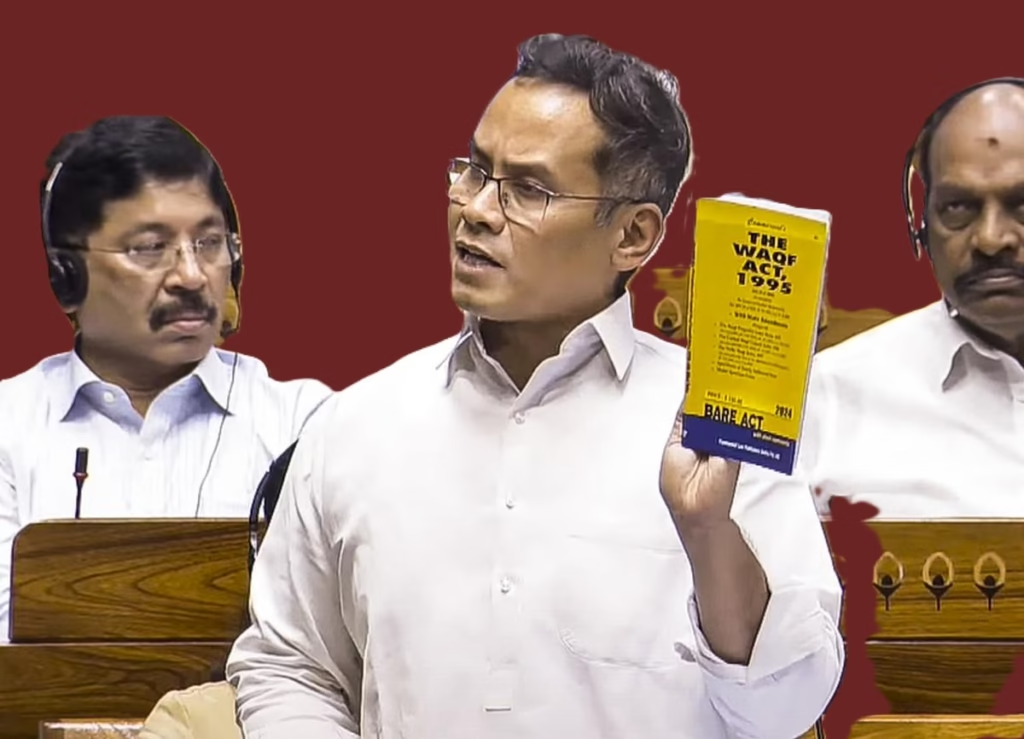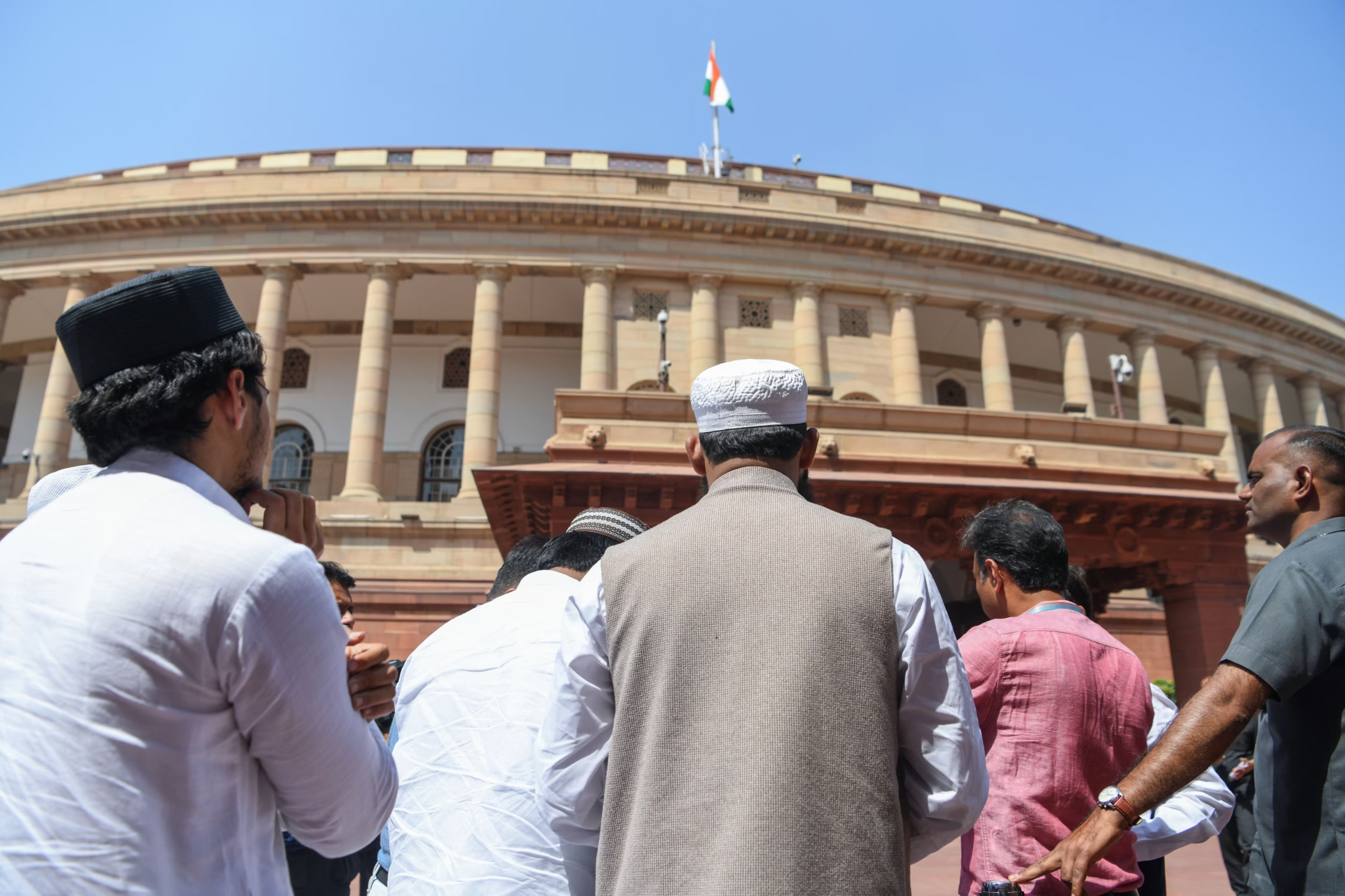The contentious Waqf Amendment Bill has emerged as one of the most polarizing pieces of legislation in recent Indian parliamentary history. After a marathon 12-hour debate that stretched into the early hours of April 3, 2025, the Lok Sabha passed this bill with 288 votes in favor and 232 against. As the bill now moves to the Rajya Sabha for consideration, it continues to generate heated discussions about religious autonomy, government oversight, and the future of Muslim endowments in India.
Understanding Waqf and Its Significance in Islamic Tradition
Waqf (plural: awqaf) represents an Islamic institution of religious endowment, where a Muslim dedicates property for religious or charitable purposes in perpetuity. In India, these endowments are estimated to be worth over $14 billion and include mosques, shrines, educational institutions, commercial properties, burial grounds, and extensive land holdings. Currently, these properties are governed under the Waqf Act of 1995, which established Waqf Boards at both central and state levels to manage and regulate them.
The concept of Waqf is deeply embedded in Islamic tradition, serving as a mechanism for charitable giving and community welfare. Once a property is declared as Waqf, it traditionally becomes irrevocable and perpetual, dedicated for the benefit of the Muslim community. This religious dimension adds complexity to any attempt to reform Waqf administration.
Current Challenges in the Waqf System

The existing Waqf system in India faces several challenges that have prompted calls for reform:
- Transparency Issues: Concerns about opacity in the management of Waqf properties, leading to allegations of mismanagement and corruption
- Property Disputes: Widespread encroachments and protracted legal battles over Waqf properties
- Administrative Inefficiencies: Outdated record-keeping systems and bureaucratic bottlenecks
- Limited Representation: Questions about whether Waqf boards adequately represent diverse interests within the Muslim community
The Waqf Amendment Bill 2025: Key Provisions and Changes
The Waqf Amendment Bill 2025 introduces several significant changes to the existing framework:
Rebranding as UMEED
The bill proposes renaming the Waqf Act as the “Unified Management Empowerment Efficiency and Development” (UMEED) Act, signaling a shift in approach and emphasis on modernization.
Diversifying Board Composition
One of the most controversial aspects is the mandated inclusion of non-Muslim members on central and state Waqf boards. The government frames this as promoting inclusivity, while critics view it as interference in religious affairs.
Elimination of ‘Waqf by User’
The bill removes the ‘Waqf by user’ provision, which previously allowed properties to be designated as Waqf based solely on their long-term use for religious activities. Properties already registered under this provision before the bill’s enactment would retain their status, except those in dispute with the government.
Reformed Dispute Resolution Mechanism
The bill introduces changes to how property disputes are resolved, giving senior government officials greater authority in determining whether a property belongs to Waqf or the government.
Enhanced Transparency Measures
A centralized portal for Waqf properties would be created, requiring mutawallis (property managers) to register all property details within six months, promoting transparency and digital record-keeping.
Protection of Women’s Inheritance Rights
The legislation ensures that women and children must receive their rightful inheritance before any property is declared as Waqf, with special safeguards for widows, divorced women, and orphans.
Government Property Investigation
Any government land or property claimed as Waqf will be investigated by an officer of a rank higher than a collector, ensuring more authoritative review of such claims.
Appeal Mechanism to High Courts
A new provision allows appeals to the High Court against Waqf Tribunal decisions, addressing the current limitation where the High Court has only limited revisional powers.
Financial Changes
The bill reduces the mandatory contribution of Waqf institutions to Waqf boards from 7% to 5%, and mandates audits for Waqf institutions earning over Rs 1 lakh by state-appointed auditors.
Protection of Tribal Lands
The bill explicitly prohibits the establishment of Waqf on lands falling under Schedule V and Schedule VI of the Constitution, protecting tribal communities’ rights.
The Government’s Stance: Case for Reform
The BJP-led government has presented several arguments in favor of the Waqf Amendment Bill:
Enhancing Transparency and Governance
Union Minister for Minority Affairs Kiren Rijiju emphasized that the bill aims to streamline the functioning of Waqf boards and promote greater transparency. The government contends that the reforms will help combat corruption and mismanagement in Waqf administration.
Benefiting the Muslim Community
During parliamentary debates, Rijiju stated: “Crores of poor Muslims will thank PM Modi on the bill being passed,” suggesting that better-managed Waqf properties would ultimately benefit the broader Muslim community rather than just a select group of administrators.
Modernization Through Technology
The government has highlighted the bill’s focus on using technology to improve record-keeping and property management, moving away from paper-based systems prone to manipulation and loss.
Addressing Exploitation of Resources
The government points to instances where valuable Waqf properties are allegedly controlled by a small group of people who profit from them at the expense of the community they are meant to serve.
Constitutional Validity Defense
Responding to opposition claims that the bill is unconstitutional, Rijiju argued: “If it was unconstitutional, why didn’t the court strike it down?… We should not use the words ‘constitutional’ and ‘unconstitutional’ so lightly.”
Opposition’s Perspective: Concerns Over Religious Autonomy
The opposition INDIA bloc and Muslim representatives have raised several objections to the bill:
Perceived Infringement on Religious Rights
Critics argue that the bill infringes on minorities’ constitutional rights, particularly religious freedom under Articles 14, 25, 26, and 29 of the Indian Constitution.
Claims of Anti-Muslim Bias
Leader of Opposition Rahul Gandhi characterized the bill as “a weapon aimed at marginalising Muslims and undermining their personal laws and property rights,” adding that it “attacks the very idea of India and violates Article 25, the Right to Freedom of Religion.”
Government Overreach Concerns
Opposition members have expressed concern about the centralization of control through government authorities over Waqf properties and disputes, viewing it as bureaucratic overreach that could cause delays and legal challenges.
Lack of Community Consultation
The bill has been criticized for insufficient consultation with Muslim stakeholders, raising questions about its legitimacy and acceptance within the community it most affects.
Dramatic Parliamentary Protests
The intensity of opposition was demonstrated when Hyderabad MP Asaduddin Owaisi tore a copy of the bill in protest during the Lok Sabha debate, declaring: “I am tearing this Bill as this Bill is unconstitutional. In this country, the BJP wants to create conflicts in the name of temples and mosques.”
Analyzing Contentious Provisions in Detail
Non-Muslim Representation on Waqf Boards
The provision requiring non-Muslim members on Waqf boards stands out as particularly controversial. Proponents argue it brings diversity and oversight, while opponents contend that non-Muslims may lack understanding of Islamic principles governing Waqf and that this represents interference in religious self-governance.
Removal of Section 40
The abolishment of Section 40, which previously gave Waqf Boards authority to designate properties as Waqf land, has significant implications for property determination and could impact the status of numerous properties across India.
Dispute Resolution Authority
The shift in authority for determining property status from Waqf tribunals to government officials in certain cases raises questions about impartiality and expertise in Islamic law, potentially increasing rather than decreasing disputes.
Limitation Act Application
The introduction of the Limitation Act, 1963, to Waqf properties could help resolve long-standing disputes but might also impact legitimate claims to historical Waqf properties that lack comprehensive documentation.
The Muslim Community’s Response and Concerns
The Muslim community’s response to the Waqf Amendment Bill has been predominantly negative, with concerns focused on:
Fear of Property Loss
There is widespread concern that the bill could make Waqf properties more vulnerable to confiscation, disputes, and demolitions, particularly given recent controversies over religious sites in India.
Religious Autonomy Erosion
Many Muslim organizations view the bill as an intrusion into religious affairs that should be governed by Islamic principles and managed by the community itself.
Economic Impact on Religious Institutions
Waqf properties often provide economic support for mosques, madrasas, and charitable activities. Changes in their governance raise concerns about future funding for these institutions.
Historical and Cultural Heritage Preservation
Many Waqf properties are centuries old and hold significant historical and cultural value for the Muslim community, intensifying concerns about their protection under the new framework.
Political Alignments: Support and Opposition
The political alignments around the Waqf Amendment Bill reflect broader political dynamics in India:
NDA Support Base
The bill received support from the BJP and its National Democratic Alliance (NDA) partners, including initially reluctant allies like the Janata Dal (United) and Telugu Desam Party, which ultimately backed the legislation after some amendments.
INDIA Bloc Opposition
The opposition INDIA bloc, led by Congress, strongly opposed the bill, with unified messaging characterizing it as anti-Muslim and unconstitutional.
Regional Party Positions
Regional parties largely aligned with their national coalition positions, though some nuanced their stance based on their constituent demographics and local political considerations.
Vote Bank Politics Accusations
Some political commentators have suggested that opposition to the bill is motivated by concerns about Muslim vote banks rather than substantive policy disagreements, while others counter that the government’s push for the bill serves its own political base.
Potential Impacts on Waqf Administration and Properties
If enacted, the Waqf Amendment Bill could have several significant impacts:
Administrative Restructuring
Waqf boards would undergo substantial restructuring with new members, potentially changing their operational dynamics and decision-making processes.
Digitization and Modernization
The mandated centralized portal could bring greater transparency to Waqf property records, potentially reducing disputes and mismanagement through improved record-keeping.
Property Status Reviews
Many properties currently designated as Waqf might face review and potential status changes, particularly those claimed by government entities or disputed by other parties.
Legal Challenges
The bill is likely to face legal challenges on constitutional grounds, potentially leading to judicial interpretations that could modify its implementation and scope.
Community-Government Relations
The manner of implementation will significantly impact community trust in the system, with potential implications for social harmony and religious relations in an already polarized environment.
Global Context: Religious Endowment Management
India’s approach to Waqf reform can be contextualized by examining how other countries manage religious endowments:
Models from Muslim-Majority Countries
Many Muslim-majority countries have modernized their Waqf systems while maintaining religious principles, offering potential models for balancing reform with respect for tradition.
Secular Democracies with Muslim Minorities
Other secular democracies with significant Muslim populations have developed various approaches to religious endowment management, often involving community governance with state oversight.
International Standards and Best Practices
International standards for religious freedom and property rights provide frameworks for evaluating the appropriate balance between state regulation and religious autonomy.
The Road Ahead: Rajya Sabha and Implementation Challenges
The Waqf Amendment Bill now moves to the Rajya Sabha, where another lengthy debate is expected:
Parliamentary Process and Potential Modifications
The Rajya Sabha has allocated eight hours for debate on the bill, suggesting recognition of its controversial nature and importance. Further amendments might emerge during this debate.
Implementation Challenges
If passed, the bill will face significant implementation challenges, including potential resistance from current Waqf administrators and community leaders, as well as technical challenges in creating the proposed digital infrastructure.
Judicial Review Likelihood
Constitutional challenges to the bill are likely, potentially leading to judicial modifications of certain provisions based on constitutional principles of religious freedom and minority rights.
Reconciliation of Competing Interests
The ultimate implementation will require balancing diverse and competing interests, including government oversight, religious autonomy, community welfare, and property rights.
Finding Middle Ground: Potential Paths Forward
Despite the polarized debate, there may be room for finding common ground:
Reform Areas with Broader Consensus
Certain aspects of the bill, such as digitization of records and protection of women’s inheritance rights, might garner broader support if separated from more controversial provisions.
Enhanced Community Consultation
A more inclusive approach to reform, with greater community consultation and sensitivity to religious concerns, might generate less controversy while achieving similar objectives.
Phased Implementation
A phased approach to implementation, beginning with less controversial measures and allowing time for adjustment, might reduce resistance and improve outcomes.
Independent Oversight
Incorporating truly independent oversight mechanisms, rather than direct government control, might address concerns about both mismanagement and religious autonomy.
The Broader Context: Secularism and Religious Governance in India
The Waqf Amendment Bill debate reflects larger questions about the relationship between the state and religious institutions in India:
Constitutional Principles at Stake
The debate touches on fundamental constitutional principles regarding secularism, religious freedom, and the state’s role in regulating religious affairs.
Precedent for Other Religious Endowments
The approach taken with Waqf properties could set precedents for how other religious endowments are governed, raising stakes beyond the Muslim community.
Balancing Reform and Respect
The challenge remains finding approaches that address legitimate concerns about governance while respecting religious traditions and community self-governance.
Implications for India’s Pluralistic Identity
The resolution of this controversy will have implications for India’s identity as a pluralistic democracy that respects diversity while pursuing administrative efficiency.
Conclusion: Navigating Complex Waters
The Waqf Amendment Bill 2025 represents a significant attempt to reform the administration of Muslim religious endowments in India. Its passage through the Lok Sabha after an extensive debate highlights both its importance and its controversial nature. As it moves to the Rajya Sabha, the challenge remains to find a balance between necessary administrative reforms and respect for religious traditions and community self-governance.
The debate around the bill reflects broader questions about religious freedom, state regulation, and minority rights in India’s diverse democracy. Finding answers that respect both good governance principles and religious autonomy will be crucial not just for Waqf administration but for India’s constitutional values and social harmony.
Whether the bill proceeds in its current form or undergoes further amendments, its implementation will require sensitivity, dialogue, and a commitment to the welfare of the communities these endowments are meant to serve. Only through such a balanced approach can reforms achieve their stated aims of transparency and efficiency while preserving the religious and cultural significance of Waqf properties for generations to come.
What Are Your Thoughts?
Do you see the Waqf Amendment Bill as a necessary reform or an infringement on religious rights? What aspects of the bill do you think are most constructive or problematic? Share your perspectives in the comments below and join this important conversation about the future of religious endowments in India.
Read more at worldsinsight.











